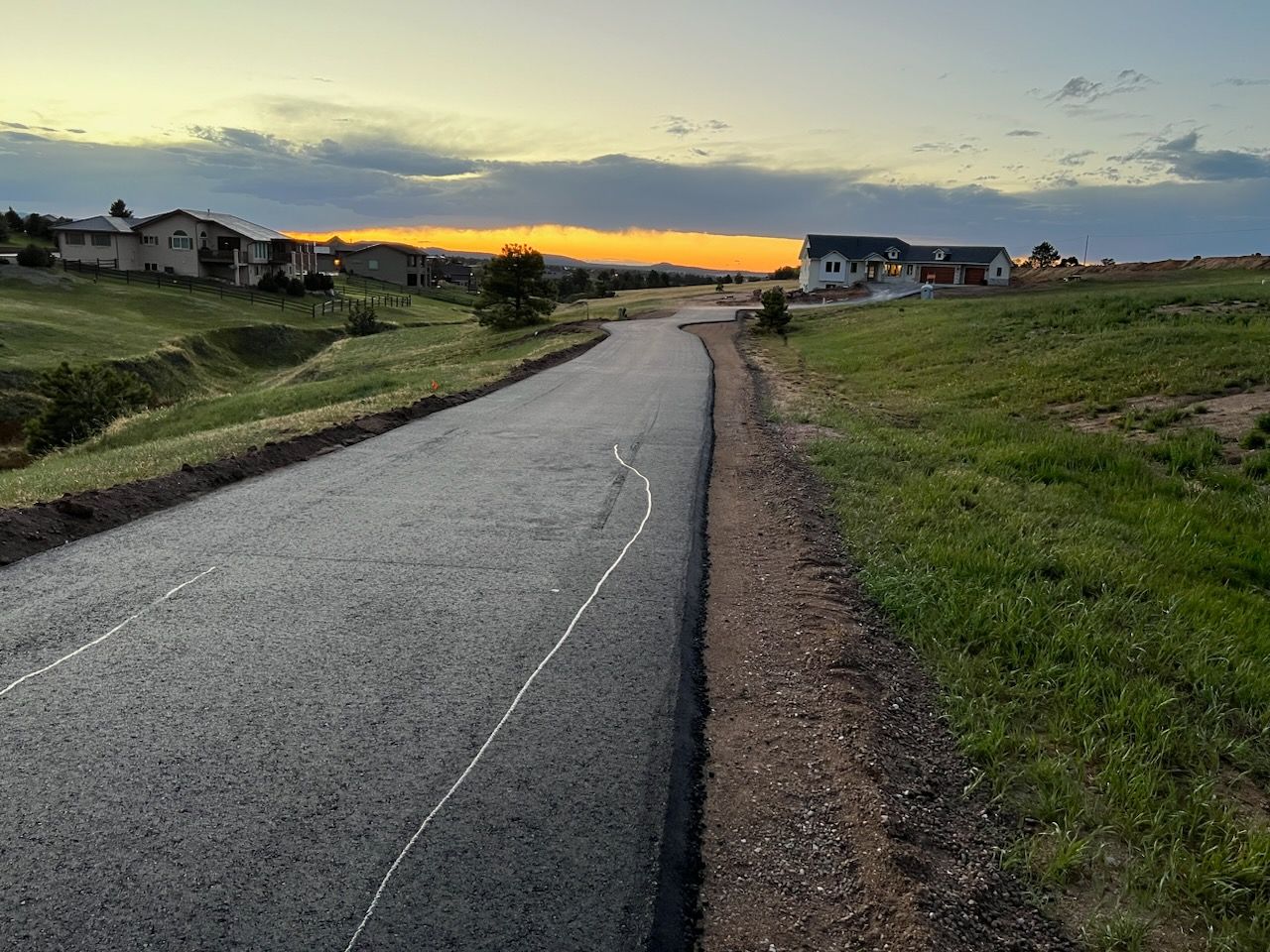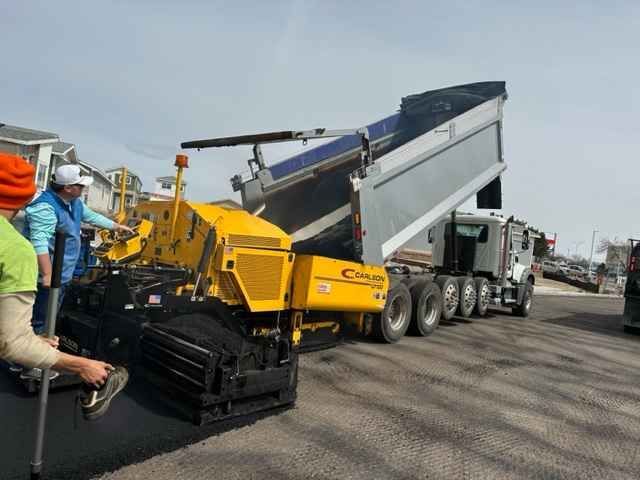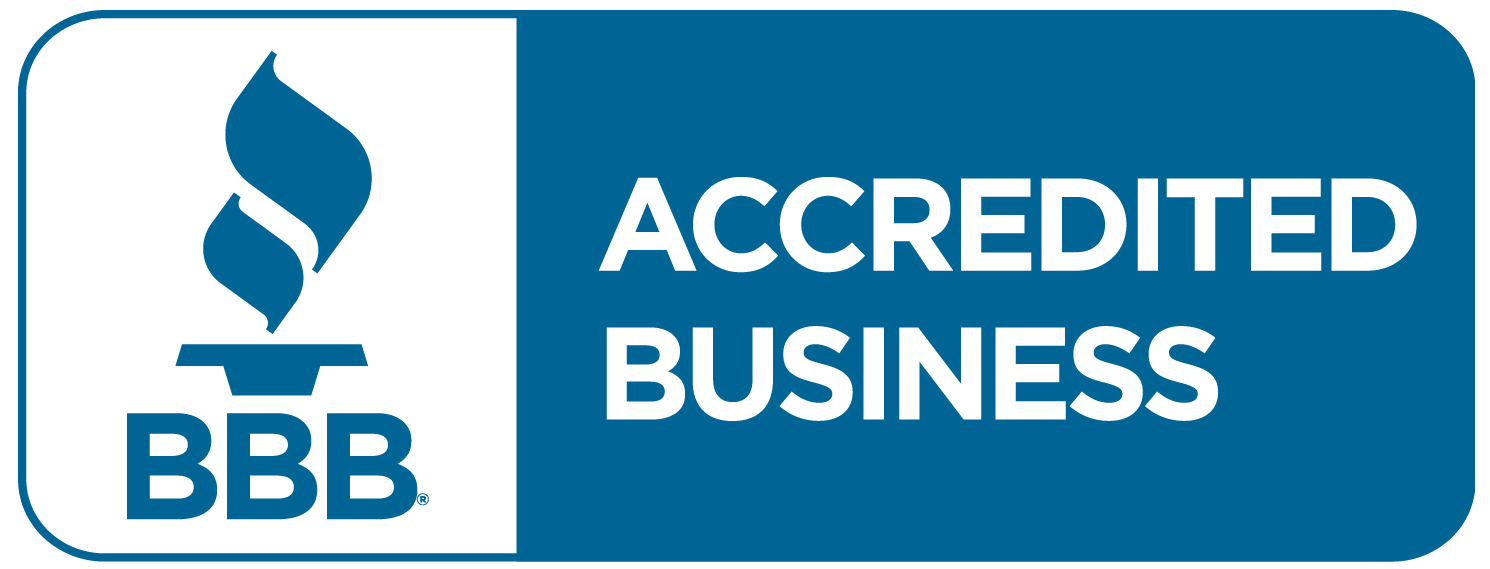Evaluating the Cost of Paving: Factors Affecting Your Project Budget
Whether you're planning to pave a new driveway, parking lot, or any other surface, understanding the factors that influence the cost of your paving project is crucial. Paving projects can vary significantly in terms of budget, and being aware of the key determinants can help you make informed decisions. In this blog post, we'll break down the various factors that affect the cost of asphalt and concrete paving projects, empowering you to assess your budget and plan accordingly. By understanding these elements, you can work with your chosen contractor to ensure a successful and cost-effective paving project.

Factors Influencing Paving Project Costs
1. Project Type
The type of paving project you're embarking on is one of the primary determinants of your project's cost. The complexity and scale of your project significantly impact the budget. For instance, a small residential driveway is usually more cost-effective than paving a vast commercial parking lot or a municipal road. A residential driveway may require minimal excavation and preparation, while a commercial parking lot may demand extensive grading, drainage systems, and site preparations. The larger the project, the more materials, labor, and equipment are needed, all of which contribute to higher costs. Conversely, smaller projects tend to be more budget-friendly as they require fewer resources and less labor-intensive work.
2. Material Selection
Another critical factor in determining project costs is the choice between asphalt and concrete as your paving material. The selection of paving material can significantly influence your project's budget. Asphalt is often the more budget-friendly option when it comes to initial costs, making it a popular choice. However, concrete, while typically more expensive upfront, offers long-term durability and lower maintenance costs. Your decision should align with your specific needs, budget, and preferences. Keep in mind that within each material category, there can be variations in costs based on factors such as material quality, thickness, and special additives. The material you choose has a direct impact on your project's longevity and maintenance requirements, which can have cost implications over time.
3. Material Costs
The cost of the paving material itself is a significant contributor to your project budget. Asphalt and concrete prices can fluctuate due to various factors, including market conditions, geographical location, and the quality of the material. It's essential to obtain accurate and up-to-date cost estimates for the specific materials that will be used in your project. Material costs can vary not only based on the chosen material but also on factors like quality, grading, and additives. Higher-quality materials typically come with a higher price tag but can result in a longer-lasting and more durable paved surface. To create a precise budget for your paving project, it's crucial to factor in the current material costs in your area.
4. Site Preparation
The condition of the site where the paving project takes place plays a significant role in determining project costs. Sites that require extensive excavation, grading, or soil stabilization will typically incur higher costs. Adequate site preparation is essential to ensure a stable and long-lasting paved surface. The level of site preparation needed depends on the existing conditions of the area. A site with uneven terrain, poor drainage, or unstable soil may require substantial grading and stabilization efforts. These activities demand more time, labor, and equipment, all of which can affect your project's budget. Proper site preparation is an investment in the durability and longevity of your paved surface.
5. Design and Layout
The complexity of the design and layout of your paved area can influence project costs. Unique patterns, curves, decorative elements, or intricate layouts in your design may require more labor, materials, and specialized equipment, all of which can increase costs. Simple and straightforward designs, on the other hand, tend to be more cost-effective. The design and layout of your project influence the level of detailing and precision required during construction. Complex designs often necessitate additional labor hours and materials to ensure that every element aligns perfectly with the design vision. Therefore, it's essential to consider the trade-offs between design intricacy and project cost when planning your paving project.
6. Surface Thickness
The thickness of the paved surface, whether it's asphalt or concrete, is another significant cost influencer. Thicker surfaces tend to cost more due to the increased amount of material and labor required. The recommended thickness for your project depends on factors like the anticipated traffic volume and the intended use of the paved area. For instance, roads with heavy traffic will require a thicker layer to withstand the wear and tear, while residential driveways may need a thinner layer. To determine the appropriate thickness for your project, it's crucial to consult with a paving professional who can assess your specific needs and budget. The thickness of the paved surface directly affects its durability and resilience, making it an important consideration for your project.
7. Accessibility and Location
The accessibility of your project site and its geographical location can significantly impact project costs. Sites that are challenging to access or located in remote areas may require more resources and effort for transportation of equipment and materials. In such cases, logistical challenges can result in increased costs, as additional time and labor are required to reach and work at the site. Urban areas with high traffic and congestion can also present logistical challenges, affecting project timelines and costs. The accessibility and location of your project site play a crucial role in budget planning, as they influence the efficiency and ease of project execution.
8. Drainage Requirements
Effective drainage is vital for the longevity of your paved surface. If your project site requires specialized drainage solutions, such as the installation of culverts, extensive grading, or the construction of stormwater management systems, these additional features can impact the budget. Proper drainage ensures that water is efficiently channeled away from the paved surface, preventing water-related damage and extending the lifespan of the pavement. Drainage requirements vary based on factors like the site's topography, local climate, and the specific needs of the project. By addressing drainage issues during the project planning phase, you can mitigate potential long-term problems and associated costs.
9. Permitting and Regulations
Obtaining permits and complying with local regulations are essential steps in any paving project. The expenses related to permitting and regulatory compliance can add to the overall project costs. These expenses vary by region and the specific requirements of your project. Local authorities often require permits for construction activities that may impact the environment, traffic, or public safety. It's essential to budget for permitting and regulatory compliance and allocate the necessary funds to secure the required permits and adhere to all local regulations. Ensuring that your project is in full compliance with all applicable laws and regulations is critical to its success, and non-compliance can result in costly delays and penalties.
10. Labor Costs
Labor is a significant component of paving project expenses. Labor costs include wages for the workforce, and they can vary based on factors such as local labor rates, project complexity, and the size of the workforce required. Complex designs or projects with tight deadlines may necessitate additional labor hours, impacting the overall budget. Labor costs also depend on the specific tasks involved in your project, including site preparation, material installation, and finishing. The quality and expertise of the labor force can influence not only labor costs but also the quality of the final product. Therefore, it's essential to consider labor costs as a key factor in your budget planning and to work with experienced contractors who can provide an accurate estimate for labor-related expenses.
11. Equipment and Machinery
The type and quantity of equipment and machinery used in your project can influence costs. High-quality, well-maintained equipment is essential for an efficient and cost-effective paving project. Specialized equipment may be required for unique project requirements, and the rental or operation of this equipment can add to the budget. Equipment expenses include fuel, maintenance, and operator costs. The use of specialized machinery can impact project efficiency and timeline, affecting labor and equipment-related expenses. It's important to work with a contractor who has access to the right equipment for your project and can provide you with an accurate estimate of the associated costs.
12. Quality and Expertise
The level of quality and expertise you seek in your paving contractor can have a substantial impact on project costs. Experienced and reputable contractors may charge higher rates, but they also provide superior workmanship and results. Investing in quality can lead to long-term savings by reducing the need for repairs and maintenance down the line. Contractors with a track record of high-quality work often have more in-depth knowledge of industry best practices, allowing them to optimize the use of materials, labor, and equipment. While quality contractors may have higher upfront costs, their expertise can ultimately lead to cost-efficiency by minimizing the need for future maintenance or corrections.
13. Contingencies
Including a contingency budget is a wise approach to anticipate and address unforeseen circumstances that may arise during the project. Unpredictable issues like adverse weather conditions, unexpected site conditions, or design changes can impact costs. A contingency fund ensures that you're prepared for these contingencies without jeopardizing the project's progress. Contingencies are essential for preventing budget overruns and ensuring that your project stays on track. By allocating a portion of your budget to contingencies, you can address unexpected challenges as they arise, helping to maintain the project's timeline and quality.
Conclusion
Evaluating the cost of your asphalt or concrete paving project involves considering a multitude of factors, each of which plays a unique and essential role in the final budget. Whether it's the project type, material selection, site preparation, design and layout, thickness, or any other factors, each element contributes to the overall cost. Additionally, it's crucial to work closely with a reputable paving contractor who can provide accurate estimates, guide you through the decision-making process, and ensure that your project stays within budget. By understanding these cost-influencing factors and collaborating with experienced professionals, you can embark on your paving project with confidence, knowing that you've made informed decisions to achieve a successful and cost-effective outcome.
When you're ready to move forward with your paving project in Colorado Springs, trust McDonald Paving to deliver high-quality services and transparent pricing. With over four decades of experience, we're committed to providing reliable and cost-effective solutions for all your paving needs. Contact us today for a consultation and start your journey toward a successful paving project.
For expert advice and top-quality paving services, contact McDonald Paving today. We're here to assist you with your paving project and ensure that it meets your budget and expectations.
You might also like
Paving and Driveway Tips and Tricks





